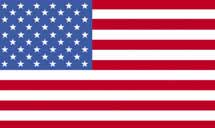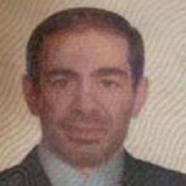Overview
Muhammad Jafar Qasir is a U.S.-designated Lebanese financial facilitator for Hezbollah. Qasir served as a key facilitator for financial disbursements from Iran’s Islamic Revolutionary Guards Corps-Quds Force (IRGC-QF) to Hezbollah.“Treasury Targets Iran’s Central Bank Governor and an Iraqi Bank Moving Millions of Dollars for IRGC-Qods Force,” U.S. Department of the Treasury, May 18, 2018, https://home.treasury.gov/news/press-releases/sm0385. The U.S.-designated IRGC-QF specializes in foreign missions, providing training, funding, and weapons to extremist groups, including Iraqi insurgents, Hezbollah, and Hamas. On May 15, 2018, Qasir was designated by the U.S Department of the Treasury as a Specially Designated Global Terrorist for his association with Hezbollah.“Treasury Targets Iran’s Central Bank Governor and an Iraqi Bank Moving Millions of Dollars for IRGC-Qods Force,” U.S. Department of the Treasury, May 18, 2018, https://home.treasury.gov/news/press-releases/sm0385.
Qasir has acted as a financial conduit for the IRGC-QF as he and other Hezbollah officials have overseen various companies complicit in the selling of crude oil, condensate, and gas oil to evade U.S. sanctions placed on the IRGC-QF.“This Week in Iran Policy,” U.S. Department of State, October 30, 2020, https://www.state.gov/this-week-in-iran-policy-23/.
Qasir is allegedly a critical link between Hezbollah and Iran as he developed the financial and logistical pipelines for weapons transportation between the IRGC-QF and Hezbollah. Qasir was a confidante of former IRGC-QF commander Qasem Soleimani and he also maintains close ties to Hezbollah Secretary-General Hassan Nasrallah.Matthew Levitt, “Hezbollah’s Procurement Channels: Leveraging Criminal Networks and Partnering with Iran,” Washington Institute for Near East Policy, March 2019, https://www.washingtoninstitute.org/uploads/Documents/pubs/CTC-SENTINEL-032019.pdf.
Qasir also reportedly directs Hezbollah Unit 108—the unit that assists in the transfer of weapons, technology, and other support from Syria to Lebanon.“Rewards for Justice – Up to $10 Million Reward Offer for Information on Hizballah’s Financial Networks: Muhammad Qasir, Muhammad Qasim al-Bazzal, and Ali Qasir,” U.S. Department of State, October 23, 2020, https://www.state.gov/rewards-for-justice-up-to-10-million-reward-offer-for-information-on-hizballahs-financial-networks-muhammad-qasir-muhammad-qasim-al-bazzal-and-ali-qasir/; Matthew Levitt, “Hezbollah’s Procurement Channels: Leveraging Criminal Networks and Partnering with Iran,” Washington Institute for Near East Policy, March 2019, https://www.washingtoninstitute.org/uploads/Documents/pubs/CTC-SENTINEL-032019.pdf. Additionally, Qasir works closely with officers from the Quds Force’s Unit 190—which reportedly specializes in smuggling weapons to Syria, Lebanon, Yemen, and Gaza.Matthew Levitt, “Hezbollah’s Procurement Channels: Leveraging Criminal Networks and Partnering with Iran,” Washington Institute for Near East Policy, March 2019, https://www.washingtoninstitute.org/uploads/Documents/pubs/CTC-SENTINEL-032019.pdf.
On April 17, 2018, Qasir and a Syrian associate received over $63 million to benefit Hezbollah, a figure which he confirmed in a letter to a senior official at the Central Bank of Iran.“Treasury Designates Illicit Russia-Iran Oil Network Supporting the Assad Regime, Hizballah, and HAMAS,” U.S. Department of Treasury, November 20, 2018, https://home.treasury.gov/news/press-releases/sm553; Matthew Levitt, “Hezbollah’s Procurement Channels: Leveraging Criminal Networks and Partnering with Iran,” Washington Institute for Near East Policy, March 2019, https://www.washingtoninstitute.org/uploads/Documents/pubs/CTC-SENTINEL-032019.pdf. Given his role in financing Hezbollah’s activities, the U.S. Department of Treasury’s Office of Foreign Assets Control designated Qasir as a Specially Designated Global Terrorist on May 15, 2018.“Rewards for Justice – Up to $10 Million Reward Offer for Information on Hizballah’s Financial Networks: Muhammad Qasir, Muhammad Qasim al-Bazzal, and Ali Qasir,” U.S. Department of State, October 23, 2020, https://www.state.gov/rewards-for-justice-up-to-10-million-reward-offer-for-information-on-hizballahs-financial-networks-muhammad-qasir-muhammad-qasim-al-bazzal-and-ali-qasir/.
On February 25, 2019, Qasir accompanied former IRGC-QF commander Qasem Soleimani as a notetaker for meetings between Syrian President Bashar al-Assad, Iranian President Hassan Rouhani, and Supreme Leader Ayatollah Khamenei.Matthew Levitt, “Hezbollah’s Procurement Channels: Leveraging Criminal Networks and Partnering with Iran,” Washington Institute for Near East Policy, March 2019, https://www.washingtoninstitute.org/uploads/Documents/pubs/CTC-SENTINEL-032019.pdf.
On October 23, 2020, the U.S. Department of State’s Rewards for Justice program offered a reward of up to $10 million for information on Qasir.“This Week in Iran Policy,” U.S. Department of State, October 30, 2020, https://www.state.gov/this-week-in-iran-policy-23/.
Associated Groups
- Extremist entity
- Hezbollah
- Read Threat Report
- Type(s) of Organization:
- Militia, political party, social-service provider, terrorist, transnational, violent
- Ideologies and Affiliations:
- Iranian-sponsored, Islamist, jihadist, Khomeinist, Shiite
- Position(s):
- Financier and facilitator
Hezbollah is an Iranian-sponsored, internationally sanctioned terrorist group with an anti-Israel and anti-U.S. agenda. Hezbollah is primarily based in Lebanon, but has carried out terrorist and criminal operations around the world.
History
United States

The U.S. Department of Treasury designated Muhammad Jafar Qasir as a Specially Designated Global Terrorist on May 15, 2018.“Treasury Targets Iran’s Central Bank Governor and an Iraqi Bank Moving Millions of Dollars for IRGC-Qods Force,” U.S. Department of the Treasury, May 18, 2018, https://home.treasury.gov/news/press-releases/sm0385.
